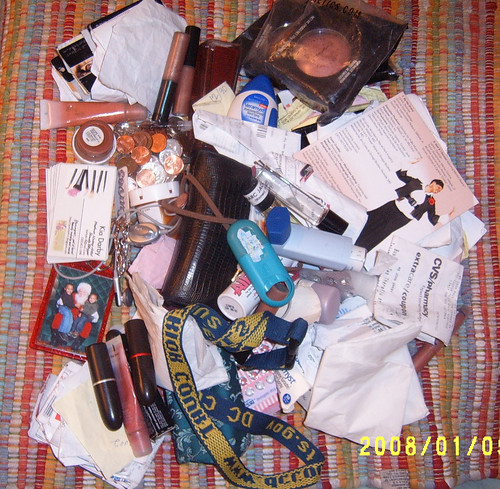Badjedidude said:
Soph said:
I hear the alcoholism rate is quite high in Russia so this is probably truer than it first appears
LOL yeah, in the WEST they call it alcoholism. In Russia they call it light drinking. In fact, I'm not sure there is such a concept as alcoholism as a disease in Russian culture. I don't think there is a Russian word for it.

----Steve
So basically Russians right now are poor alcoholics. And the alcoholism is really having a bad impact on the russian economy. Its like an epidemic that is paralyzing the nation. :S
Moscow - Russia's Prime Minister Vladimir Putin is campaigning for more sobriety in his country and has launched a large-scale offensive against excessive vodka consumption. Putin wants to reduce the level of alcohol consumption by half by the year 2020. "Vodka can turn any person into a Russian!" is a popular drinking toast and is an indication that drinking vodka is widely accepted in Russian society. Hardly any social occasion takes place without vodka, no business meeting would be complete without some kind of distilled liquor and no family gathering without Russian sparkling wine.
It is quite common to see men on their way home from a day's work stopping off at a kiosk to buy a bottle of beer. Russian leaders have also been known to be fond of a drop. Former leader Boris Yeltsin, who died in 2007, was famed for his love of vodka.
Beer, sparkling wine and above all vodka are Russians' favourite beverages 'Äì as well their biggest burden. The citizens of St Petersburg and Vladivostok consume about 18 litres of pure alcohol a year. In comparison, another nationality known for its fondness for things alcoholic -- the Germans -- drink about 12 litres per annum.
Alcohol addiction has seriously scarred Russian society and it has even been blamed for Russia's declining population. The mortality rate from alcohol addiction in Russia is far higher than in Western Europe. According to official figures, eight Russians die every hour from drinking alcohol to excess. The annual death rate is over 75,000. These figures have spurred Putin to pursue his initiative.
"Vodka is healthy. I don't understand what the problem is," says Natalya. The sales assistant is standing in front of a battery of vodka bottles in a shop in Moscow. "Of course you should drink sensibly," adds Natalya after some thought. Perhaps her eye was caught by a sign beside the vodka shelves forbidding alcohol to anyone under the age of 18.
Before Putin's campaign consumers could buy cheap vodka from street vendors, some of whom had watered down the spirit with anti-freeze. Last year an estimated 750 million litres of vodka was produced illegally. Since then Putin has imposed a minimum price for vodka.
A half litre bottle now costs at least 89 rouble 'Äì about three dollars 'Äì over the counter. Putin's aim is to send a warning signal to the public that they should beware of cheap vodka which is probably adulterated and dangerous. Another goal is to encourage vodka lovers to buy a better class of product.
Russia's President Dimitry Medvedev declared war on drunkenness when he came into office in May 2008. Health officials had made repeated calls for effective measures to combat alcoholism, however, there is little to show for that.
Russia is now banning alcohol from sport and leisure facilities and Putin has ordered the health ministry to spend 11 million dollars on an awareness campaign. The Kremlin is also giving a further 12.5 million dollars to regional governments to invest in medical equipment.
It appears that Putin is taking the issue seriously but his critics have warned that raising the price of vodka will only drive more Russians to buy cheap vodka that has been mixed with industrial alcohol.
Putin is putting his personal popularity on the line in his struggle against what he has called the "national catastrophe." The example set by the Soviet leader Mikhail Gorbachev in the 1980s should be a warning. Gorbachev tried to fight alcoholism with a prohibition but after massive protest he had to quickly roll back on his campaign.
Nevertheless, there is a great need for Russia to deal with the problem. A growing number of Russians are turning to drink because of the global economic downturn with the aim of forgetting their problems in a cloud of alcohol. As a result sales of vodka grew by five per cent in 2009 compared to the year before.
Original Article Link:
http://www.earthtimes.org/articles/show/308616,russia-steps-up-campaign-against-alcoholism.html



